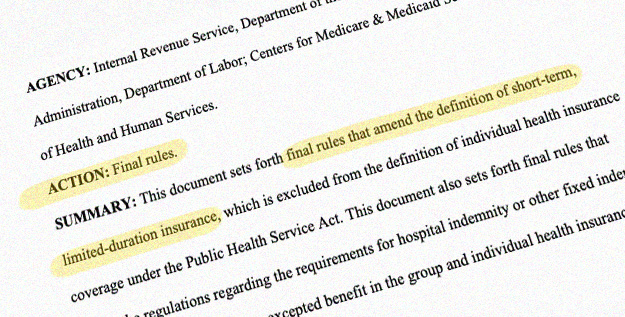Q. If an individual pays for an exchange plan, how do they pay for the premium pre-tax, the way they would if they had an employer-sponsored plan? This can be a substantial cost impact for the middle-class taxpayer who doesn’t qualify for the tax credit/subsidy. If you itemize, you do not get the full benefit that other taxpayers get. Am I missing something?
A. If you’re self-employed, you can generally deduct the full amount you pay in premiums without having to itemize your deduction. (Here’s more the self-employed health insurance deduction.)
But if you’re not self-employed, the only way to deduct your health insurance premiums is to itemize your deductions (very few people itemize, especially since the Tax Cuts and Jobs Act significantly increased the standard deduction). You can only deduct your total medical expenses that exceed 7.5% of your AGI, although health insurance premiums count towards your total medical expenses. So as an example, if your AGI is $60,000 and your total medical expenses are $8,000 for the year (including health insurance premiums), you’d be allowed to deduct $3,500 in medical expenses as part of your itemized deductions on schedule A. (7.5% of $60,000 is $4,500, so you’re allowed to deduct the portion of your total medical expenses that exceeds $4,500).
Note that the medical expense deduction threshold used to be 7.5% of income; the ACA changed it to 10%, but it soon reverted to 7.5% and has remained at that level.
(The GOP tax bill that was enacted in December 2017 put the medical expenses deduction back to 7.5%, but only for 2017 and 2018. Then Section 103 of the Further Consolidated Appropriations Act, 2020, enacted in December 2019, kept that lower threshold in place for tax years 2019 and 2020. And finally, the Consolidated Appropriations Act, 2021 (Title I, Section 101) permanently reset the threshold at 7.5%, making it this deduction more accessible for more people going forward. But as noted above, the 2017 GOP tax bill also greatly increased the standard deduction, and most tax filers choose that instead of itemizing their deductions.)
The deductibility of health insurance premiums is an issue that has come up in health reform discussions many times over the years, and it’s undeniable that employees who must purchase their own health insurance are at a disadvantage tax-wise. Future legislation could change this, but for now, individual health insurance premiums are generally not deductible without itemizing unless you’re self-employed.
But if you qualify for a premium tax credit (the vast majority of exchange enrollees do, especially while the American Rescue Plan’s subsidy enhancements are in effect), it will offset some or even all of the monthly premium you have to pay, putting you on much more equal footing with people who get employer-sponsored health coverage.













